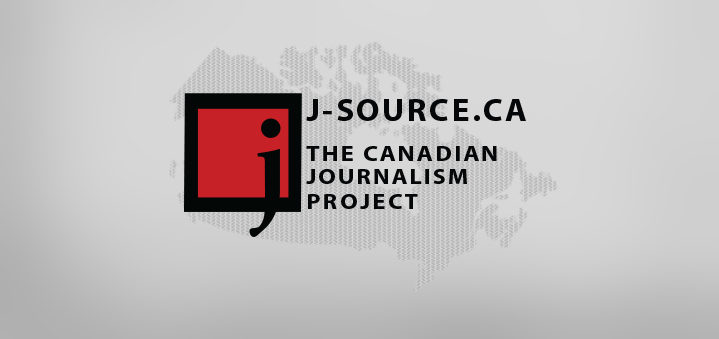Gerster is the latest journalist to turn to readers to support her work directly.
By Zoe McKnight
Jane Gerster is the latest Canadian journalist to turn to her peers and strangers to support her reporting.

Gerster, 23, is crowdfunding $5,000 to support a year-long reporting project that will take her to cities and remote communities across the country to dig into the “stories behind the statistics” of Canada’s missing and murdered Aboriginal women.
Through Beacon, an Oakland, Calif.-based website that has funded over 120 journalism ideas since it launched in 2013, Gerster raised 96 per cent of her goal in one week.
“I want to kind of sink myself into something deeper, and this is a story that really bugs me because there’s not enough reporting on it, or it’s the case where we only pay attention when teenagers like Tina Fontaine die,” said the Carleton University grad, who is based in Toronto and Baltimore, Md., where she is pursuing an MFA in creative non-fiction at Goucher College.
“There’s more than 1,100 missing or murdered Aboriginal women, and we seem to focus on the ones we deem pretty or young or innocent,” she said. “My goal is to reach out to those who are more isolated and whose sisters or wives or daughters have, for whatever reason, not fit into those categories.”
Rather than the gift-like incentives offered by Indiegogo and Kickstarter, Beacon offers subscription-based access to published work in exchange for contributions. But similar to those other sites, the fundraising goal must be met before the project can be green-lit.
Gerster has already begun to reach out to affected families, First Nations researchers and associations, but the money she raises will fund on-the-ground reporting.
She plans to travel on the cheap, taking trains and buses wherever possible. Some contributors have offered donations in kind, such as frequent flyer points. Others, like a photojournalist friend in northern Alberta, have volunteered their time.
[node:related]
“I think it’s really important for this type of story to actually go in person, and not just do phone calls, in terms of trust and really getting a sense of the story,” Gerster said.
Hers is the latest Canadian crowdfunded initiative, following, most notably, Jesse Brown, who created the Canadaland podcast and who broke the Jian Ghomeshi sex abuse story with the Toronto Star’s Kevin Donovan. Brown has produced 66 episodes of the podcast and thanks his contributors by name on the air. In Hamilton, Ont., Joey Coleman livestreams city hall meetings and covers local news, calling himself “Canada’s first crowdfunded local journalist.” On his website he asks for a regular donation of $25 monthly.
[[{“fid”:”3535″,”view_mode”:”default”,”fields”:{“format”:”default”,”field_file_image_alt_text[und][0][value]”:””,”field_file_image_title_text[und][0][value]”:””},”type”:”media”,”link_text”:null,”attributes”:{“height”:”1000″,”width”:”1494″,”style”:”width: 672px; height: 450px;”,”class”:”media-element file-default”}}]]
Worshippers at the Abdullah Shah Ghazi shrine in Karachi, Pakistan. (Photo by Naheed Mustafa)
In 2013, Naheed Mustafa, a freelance journalist and radio producer, raised $15,000 dollars for a seven-week reporting trip to Afghanistan and Pakistan. She used the website Indiegogo and offered incentives such as an embroidered bedspread for a contribution of $1,000 or more or silver jewelry from the region for $500. Mustafa also offered written work ranging from personal postcards to exclusive access to blog posts about her journey.
In her Indiegogo pitch, Mustafa said crowdfunding the cost of her trip would allow her to produce stories requiring patience and deeper reporting, rather than shorter pieces just to pay her way. Her stories were published in Maisonneuve, Foreign Affairs, The Globe and Mail and aired on the CBC Radio program Ideas.
“People were really supportive, they gave on average more than I thought they would give,” Mustafa said, adding the average contribution was $50. Though Mustafa herself is unlikely to try the same strategy again—citing donor fatigue and other concerns—she said crowdfunding is likely to persist for freelancers, especially in an era of newsroom cuts.
“I think it’s a model that can work and will work but it will probably be more successful around ‘advocacy journalism’—people are going to give money if they know what they’re getting for their dollars,” whether that means funding a particular journalist, topic or publication, she said. “I can see it becoming more entrenched.”
[[{“fid”:”3530″,”view_mode”:”default”,”fields”:{“format”:”default”,”field_file_image_alt_text[und][0][value]”:””,”field_file_image_title_text[und][0][value]”:””},”type”:”media”,”link_text”:null,”attributes”:{“height”:”462″,”width”:”720″,”style”:”width: 156px; height: 100px; margin-left: 12px; margin-right: 12px; float: left;”,”class”:”media-element file-default”}}]]Zoe McKnight is a Toronto-based freelance reporter and Ryerson University j-school grad. She’s on Twitter @zoemck.

